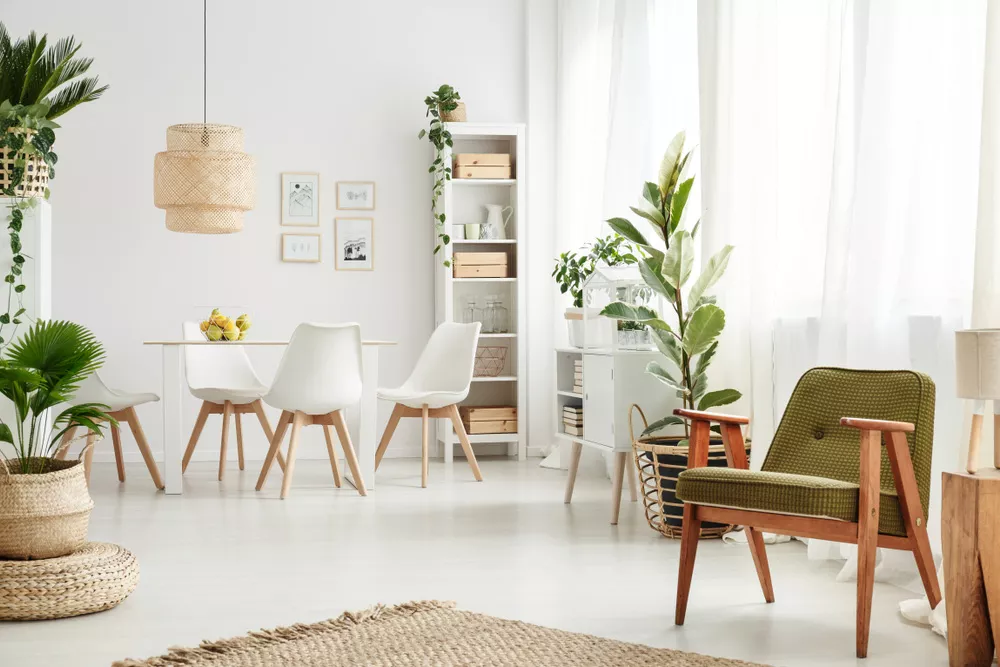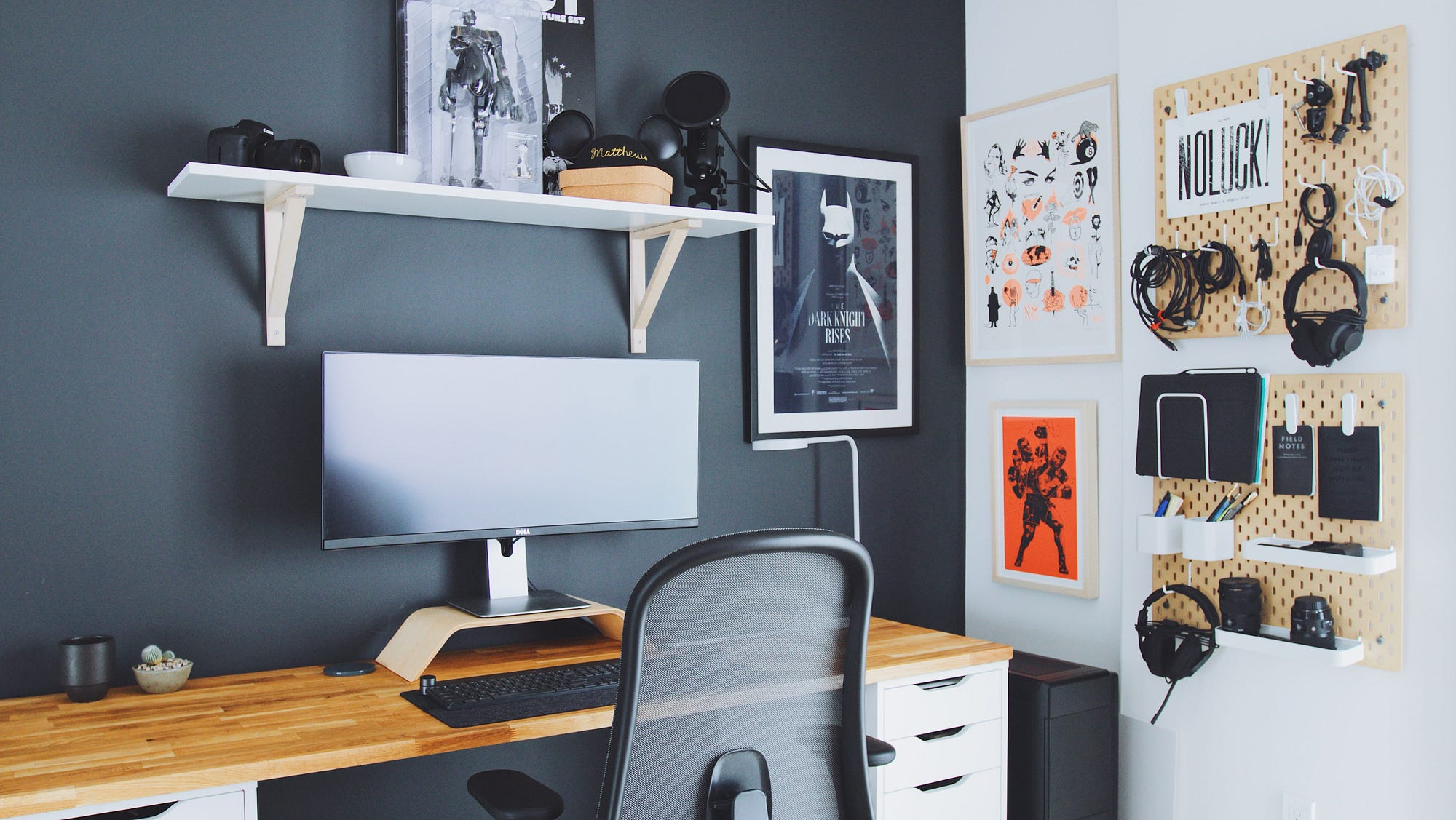Minimalism for Beginners: Decluttering Your Life and Mind

In an increasingly complex and consumer-driven world, the concept of minimalism offers a refreshing alternative: a path towards a life less cluttered, more intentional, and ultimately, more fulfilling. Minimalism is not merely about owning fewer possessions; it's a philosophy that extends to every facet of existence, from our physical spaces to our mental landscapes. It encourages us to critically evaluate what truly adds value to our lives and to consciously shed what doesn't. For beginners, the journey into minimalism can seem daunting, but it is a gradual process of discovery and liberation. This guide aims to demystify minimalism, providing practical steps to declutter your home and mind, and to embrace a lifestyle that prioritizes experiences over possessions, and peace over accumulation.
The allure of minimalism lies in its promise of freedom. Freedom from the burden of excessive belongings, from the constant pressure to acquire more, and from the mental noise that often accompanies a cluttered environment. By adopting minimalist principles, individuals often report reduced stress, increased financial stability, enhanced focus, and a deeper appreciation for the simple joys of life. It's about creating space—physical, mental, and emotionalfor what truly matters. This article will walk you through the foundational aspects of minimalism, offering actionable advice to help you embark on your own journey towards a more mindful and uncluttered existence.
Understanding Minimalism: More Than Just Less Stuff
Before diving into the practicalities of decluttering, it's crucial to grasp the core tenets of minimalism. While often associated with sparse living spaces and a limited wardrobe, true minimalism transcends material possessions. It's a mindset that questions the societal narrative of 'more is better' and instead champions the idea that 'enough is plenty.' It's about intentionality – making conscious decisions about what you bring into your life, whether it's a new item, a commitment, or even a thought. This deliberate approach helps to align your actions with your values, leading to a more authentic and purpose-driven life.
Minimalism is highly personal and adaptable. There isn't a one-size-fits-all definition or a strict set of rules to follow. For some, it might mean living with only a few dozen possessions, while for others, it could simply involve regularly decluttering and being mindful of new purchases. The key is to find what works for you, what brings you peace, and what supports your personal goals. It's not about deprivation, but about optimization – removing the superfluous to highlight the essential. This understanding forms the bedrock upon which you can build your minimalist journey, ensuring that your efforts are sustainable and genuinely contribute to your well-being.
Decluttering Your Physical Space: A Step-by-Step Approach
The most tangible aspect of minimalism for many beginners is the decluttering of physical possessions. This process can be overwhelming if approached without a plan. A systematic approach can make it manageable and even enjoyable. Start small, perhaps with a single drawer, a shelf, or a small closet. The goal is to build momentum and confidence before tackling larger areas. A popular method is the 'Four-Box Method': create boxes labeled 'Keep', 'Donate/Sell', 'Trash', and 'Relocate'. As you go through items, assign them to one of these categories. Be honest with yourself about what you truly need, use, or love.
When decluttering, consider the 'KonMari Method' popularized by Marie Kondo, which encourages you to ask if an item 'sparks joy'. While this might seem abstract, it's a powerful way to connect with your possessions on an emotional level and determine their true value to you. For items that don't spark joy, express gratitude for their service before letting them go. This practice fosters a respectful relationship with your belongings and makes the parting easier. Remember, decluttering is not a one-time event but an ongoing practice. Regularly assess your belongings to prevent accumulation.
Focus on one category at a time, rather than one room at a time. For example, gather all your clothes from every closet and drawer and sort them together. This gives you a clear picture of the quantity you own and helps you make more informed decisions. The same applies to books, documents, kitchenware, and sentimental items. Be ruthless but realistic. It's okay to keep things that are genuinely useful or hold significant sentimental value. The aim is to create a living space that supports your lifestyle, not one that burdens it with excess.
After decluttering, establish systems to maintain order. Every item should have a designated home. When you bring something new into your home, consider the 'one in, one out' rule to prevent new clutter from accumulating. This conscious consumption is a cornerstone of minimalism. By being mindful of what you acquire, you reduce the need for future decluttering efforts and ensure that your physical space remains a sanctuary, reflecting your commitment to a simpler, more intentional life.
Decluttering Your Mind: Cultivating Inner Peace
While physical decluttering is often the starting point, true minimalism extends to decluttering your mind. Our minds can become as cluttered as our homes, filled with unnecessary worries, distractions, and commitments that drain our energy and prevent us from focusing on what truly matters. Mental decluttering involves identifying and letting go of these non-essential elements, creating space for clarity, focus, and inner peace. This aspect of minimalism is perhaps more challenging than physical decluttering, as it requires introspection and a willingness to confront internal patterns.
One effective way to declutter your mind is through mindfulness and meditation. Regular practice can help you observe your thoughts without judgment, allowing you to recognize patterns of negative thinking or unnecessary rumination. Just as you decide what physical items to keep, you can choose which thoughts to engage with and which to let pass. Digital decluttering is another crucial component of mental clarity. Our constant connection to devices and social media can lead to information overload and a fragmented attention span. Consider setting boundaries for screen time, unsubscribing from unnecessary emails, and curating your social media feeds to only include content that genuinely enriches your life.
Beyond digital habits, evaluate your commitments. Are you overscheduled? Do you say 'yes' to things out of obligation rather than genuine desire? Learning to say 'no' is a powerful act of mental decluttering. Prioritize activities and relationships that align with your values and bring you joy, and gently release those that don't. This doesn't mean becoming isolated, but rather being intentional about how you invest your time and energy. By simplifying your schedule and commitments, you reduce stress and create more mental bandwidth for creativity, reflection, and meaningful connections.
Finally, practice gratitude and self-compassion. A cluttered mind often harbors self-criticism and a focus on what's lacking. Shifting your perspective to appreciate what you have and to treat yourself with kindness can significantly reduce mental noise. Remember, mental decluttering is an ongoing process, much like physical decluttering. It requires patience, persistence, and a commitment to nurturing your inner landscape. As you shed mental clutter, you'll find yourself more present, more resilient, and better equipped to navigate the complexities of life with a sense of calm and purpose.
Benefits of Embracing a Minimalist Lifestyle
The journey into minimalism, while requiring effort, yields a multitude of benefits that profoundly impact various aspects of life. One of the most immediate advantages is financial. By reducing consumption and prioritizing needs over wants, individuals often find themselves spending less and saving more. This financial freedom can alleviate stress and open up opportunities for experiences that truly matter, such as travel or pursuing passions.
Beyond the monetary aspect, minimalism contributes significantly to mental well-being. A decluttered physical space often leads to a decluttered mind. With fewer distractions and less visual noise, it becomes easier to focus, concentrate, and engage in deep work or creative pursuits. The act of letting go of possessions can also be incredibly liberating, fostering a sense of control and reducing anxiety associated with accumulation and maintenance.
Environmental benefits are another compelling reason to embrace minimalism. By consuming less, we reduce our demand for new products, thereby lessening the environmental impact of manufacturing, transportation, and waste. Choosing durable, high-quality items over disposable ones further contributes to a more sustainable lifestyle. Minimalism encourages a conscious approach to consumption, promoting a healthier relationship with both our belongings and the planet.
Furthermore, minimalism can enhance relationships. When less time and energy are spent on acquiring and maintaining possessions, more can be dedicated to fostering meaningful connections with loved ones. Experiences often take precedence over material gifts, leading to richer, more memorable interactions. The focus shifts from external validation through possessions to internal fulfillment through relationships and personal growth.
Ultimately, embracing a minimalist lifestyle is about aligning your actions with your values. It's about making conscious choices that lead to a more intentional, purposeful, and fulfilling life. The benefits extend far beyond a tidy home, touching upon financial stability, mental clarity, environmental responsibility, and deeper human connections. It's a journey of self-discovery that empowers you to live more with less.
Conclusion: Your Journey to a More Intentional Life
Embarking on a minimalist journey is a transformative experience that offers profound benefits for your home, mind, and overall well-being. It's a continuous process of learning, adapting, and refining what truly matters to you. Remember, minimalism is not about strict rules or deprivation, but about intentionality and creating a life that is rich in experiences, relationships, and purpose, rather than burdened by excess.
Start small, be patient with yourself, and celebrate every step of progress. Whether you're decluttering a single drawer or re-evaluating your daily commitments, each conscious choice brings you closer to a more peaceful and fulfilling existence. Embrace the freedom that comes with living with less, and discover the profound joy of living more intentionally. Your journey to a simpler, more meaningful life begins now.


